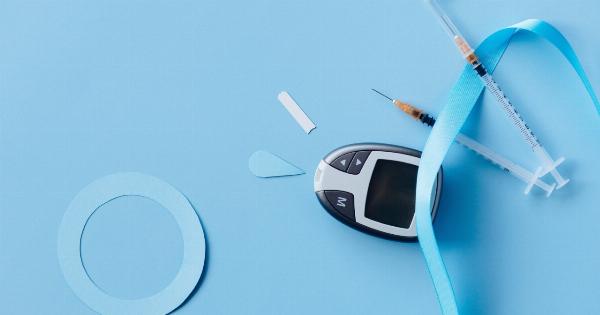Compulsion can take many forms. It could be an addiction to substances such as drugs or alcohol. It could be an obsession with work, exercise, or a particular hobby.
It could even manifest as compulsive behaviors like hoarding or constantly seeking approval from others. Regardless of the form it takes, compulsion can control our lives and make us feel like slaves to our desires.
If you’re wondering whether you are a slave to your compulsions, take this simple test to find out.
By honestly answering the following questions, you can gain a better understanding of whether your behaviors and thoughts fall under the umbrella of compulsion.
1. Do you feel an overwhelming urge or need to engage in a specific behavior?
If you frequently find yourself experiencing intense cravings or urges, it may be a sign that you have become enslaved to a compulsion. These urges could arise in response to certain triggers or they could occur seemingly out of nowhere.
It’s important to take note of these feelings and evaluate their impact on your daily life.
2. Have you tried to stop or reduce this behavior but found it extremely difficult or impossible?
One of the hallmarks of compulsion is the inability to control or stop a behavior, despite negative consequences.
If you have made efforts to quit or cut back on a particular activity, substance, or behavior, but haven’t been successful, it could indicate that you are indeed a slave to compulsion.
3. Are the consequences of your behavior causing distress or interfering with your daily life?
Compulsive behaviors often come with negative consequences that can impact various aspects of your life.
These consequences could include strain on relationships, declines in physical or mental health, financial difficulties, or damage to your reputation. If you find that your behavior is causing distress or interfering with your ability to live a fulfilling life, it’s crucial to recognize the presence of compulsion.
4. Do you continue the behavior despite knowing it is harmful?
Compulsion typically involves engaging in behaviors that are known to be harmful, either to your physical or mental well-being.
Despite knowing that these behaviors are detrimental, individuals struggling with compulsion may still find it difficult to stop. This cycle of engaging in harmful behaviors despite awareness of their consequences is a strong indicator of being a slave to compulsion.
5. Does the behavior provide temporary relief or pleasure but is followed by guilt or regret?
Many people with compulsions engage in certain behaviors because they provide temporary relief from negative emotions or stress. However, this relief is often short-lived and is soon followed by feelings of guilt, shame, or regret.
If you find yourself caught in this cycle, moving from temporary relief to negative emotions, it suggests that you may be struggling with compulsion.
6. Do you feel anxious, restless, or irritable when you are unable to engage in the behavior?
Compulsion can lead to intense feelings of anxiety, restlessness, or irritability when individuals are unable to engage in the desired behavior.
This can result in a constant preoccupation with the compulsion, making it difficult to focus on other tasks or responsibilities. If you experience these symptoms when you are unable to fulfill your compulsion, it may be a sign that it has taken control of your life.
7. Do you engage in the behavior secretly or lie about it to others?
A common characteristic of compulsive behavior is the need for secrecy. Individuals may feel ashamed or embarrassed about their compulsions and, as a result, engage in them privately or lie about their actions to avoid judgment.
If you find yourself hiding your behavior or being dishonest about it, it suggests that you are enslaved to your compulsion.
8. Have your relationships or social interactions been negatively affected by your behavior?
Compulsion can strain relationships, leading to conflicts or distance between individuals.
If your behavior has caused strains in your relationships or if you find that you are isolating yourself from social interactions in order to engage in your compulsion, it is a strong indication that you are a slave to compulsion.
9. Have you experienced withdrawal symptoms when trying to quit or reduce the behavior?
Withdrawal symptoms are commonly associated with substance addictions, but they can also occur with certain behavioral compulsions.
If you have experienced physical or emotional discomfort when attempting to quit or reduce your compulsion, it indicates a strong addiction-like aspect to your behavior.
10. Do you spend excessive amounts of time, money, or energy on the behavior?
Another common sign of compulsion is the excessive investment of time, money, or energy into a particular behavior.
If you find that your compulsion is consuming a significant amount of resources, to the detriment of other important aspects of your life, it is a clear indication that you are a slave to that compulsion.
Results:
Count the number of “yes” answers you have given to the questions above. This will help you determine if you are a slave to compulsion or if your behaviors are within a healthy range.
If you answered “yes” to:.
0-2 questions: Your behaviors do not align with the characteristics of compulsion. However, it’s always important to regularly evaluate your actions and make sure they remain under your control.
3-5 questions: Your behaviors show some signs of compulsion. It would be beneficial to further explore these behaviors and consider seeking support or professional help to prevent them from escalating.
6-8 questions: Your behaviors strongly indicate that you have become a slave to compulsion. It is critical to seek the assistance of a mental health professional or support group to regain control and improve your overall well-being.
9-10 questions: Based on your answers, it is highly likely that you are currently enslaved to compulsion. Urgent intervention is essential.
Reach out to a mental health professional or a reputable support group to initiate the process of recovery and healing.
In conclusion,
Being a slave to compulsion can significantly impact your quality of life and overall well-being. Recognizing the signs and seeking appropriate help is crucial for breaking free from the chains of compulsion.
Remember, you have the power to regain control and build a fulfilling life.






























